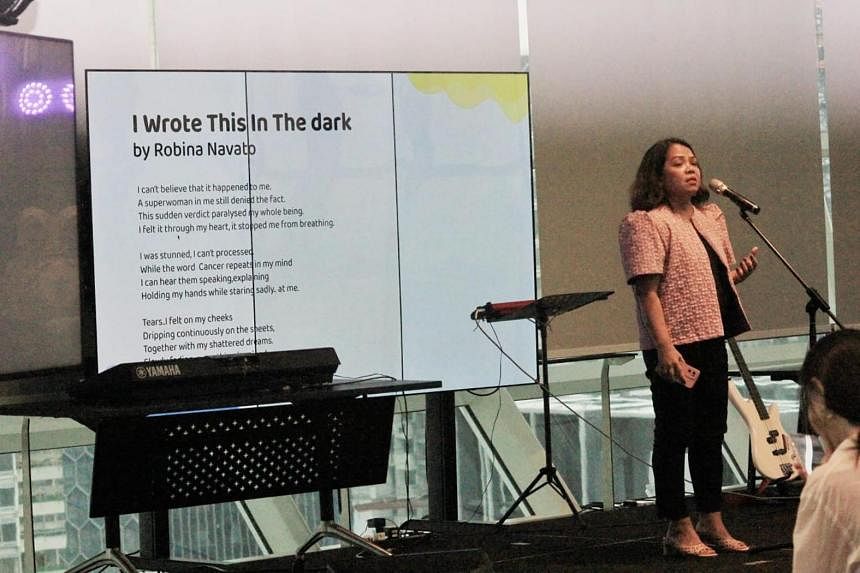SINGAPORE – Agencies that assist domestic workers have noticed more employers seeking help for their maids’ mental well-being.
They said this is a welcome sign, as it shows Singapore employers are becoming more compassionate and aware of the importance of ensuring their maids are happy at work.
Mr Subhash Pritmani, chief executive officer of Foreign Domestic Worker Association for Social Support and Training (Fast), recently observed that employers were more proactive, noticing changes in their domestic workers’ behaviour.
Fast’s senior executive for social support, Ms Sharon Rogers, said more employers have called the agency to ask how to help their maids.
She said: “We encourage it because domestic workers themselves might not notice their own signs of distress. These include them crying, being absorbed in their thoughts and being more absent-minded.”
She said one employer noticed her maid of over a decade was listless.
Said Ms Rogers: “The employer called Fast, who arranged for counselling sessions, and she felt better after attending them.”
The Centre for Domestic Employees (CDE) has observed more employers bringing their domestic workers to its events to improve morale.
Mr Michael Lim, director of the Migrant Workers’ Segment at the National Trades Union Congress, who oversees the CDE, said employers sometimes accompany their domestic workers for their activities.
He said: “Last year, when we did our International Migrants Day at Gardens by the Bay, the turnout was good. We had employers and their families coming to the festival to participate in some of the things we organised.”
The Humanitarian Organisation for Migration Economics (Home) noticed employers calling it to seek help for their domestic workers.
Dr Stephanie Chok, Home’s executive director, said: “They ask if there is anyone who can speak to their domestic workers who appear to be depressed or are facing problems back home.”
Dr Chok added that employers usually ask for someone to speak to the domestic workers in their native language, which Home helpdesk volunteers will assist with.
Domestic worker Robina Navato, 51, came to Singapore from the Philippines in 1995, and has since worked for 13 employers.

She said her first employer was the best among them.
She said: “My first employer treated me like a part of their family. They included me in whatever they ate. I did not have to wait for them to finish eating first.”
She said most employers were very nice, but the way some treated her took a toll on her mental health.
She said one employer allowed her to eat only at the balcony outside her room when they had finished eating. She could enter the house only from the back door and could not sit on the sofa.
Ms Navato cried every night.
She said: “I begged my first employer to take me back to work for them, but they no longer needed a domestic worker.”
She has volunteered at Home’s helpdesk at Lucky Plaza on Sundays since 2015, advising maids on employment issues.
She returned to the Philippines in 2023 to undergo treatment for Stage 2 cervical cancer, and continues to offer peer support to fellow maids in Singapore as a Home volunteer.

Another maid who has been volunteering with Home since 2014 is Ms Istriyanti, 43, who also gives advice on employment issues at the City Plaza helpdesk every Sunday.
Ms Istriyanti’s employer allows her to have a day off every week and does not restrict her phone use.
She said: “I feel happy operating the helpdesk, otherwise, I’ll be very bored.”

A Ministry of Manpower (MOM) spokesperson said it supports the mental well-being of migrant workers (MWs) and migrant domestic workers (MDWs) by ensuring they can access timely and comprehensive mental health services.
The spokesperson said new workers attend a Settling-In Programme, to learn about their rights and responsibilities, how to manage stress, and avenues to seek help.
The spokesperson added that MOM also partners the CDE to conduct two interviews with all first-time MDWs within the first year of their employment to check if they are adjusting well.
“MOM has also been working closely with non-governmental organisations, such as the Migrant Workers’ Centre, CDE and HealthServe, to provide support helplines as well as counselling services in our MW and MDWs’ native languages,” said the spokesperson.
They are referred to MOM for further help where necessary.
MDWs can also access helplines via the SGWorkPass application and the MDW WhatsApp channel.


